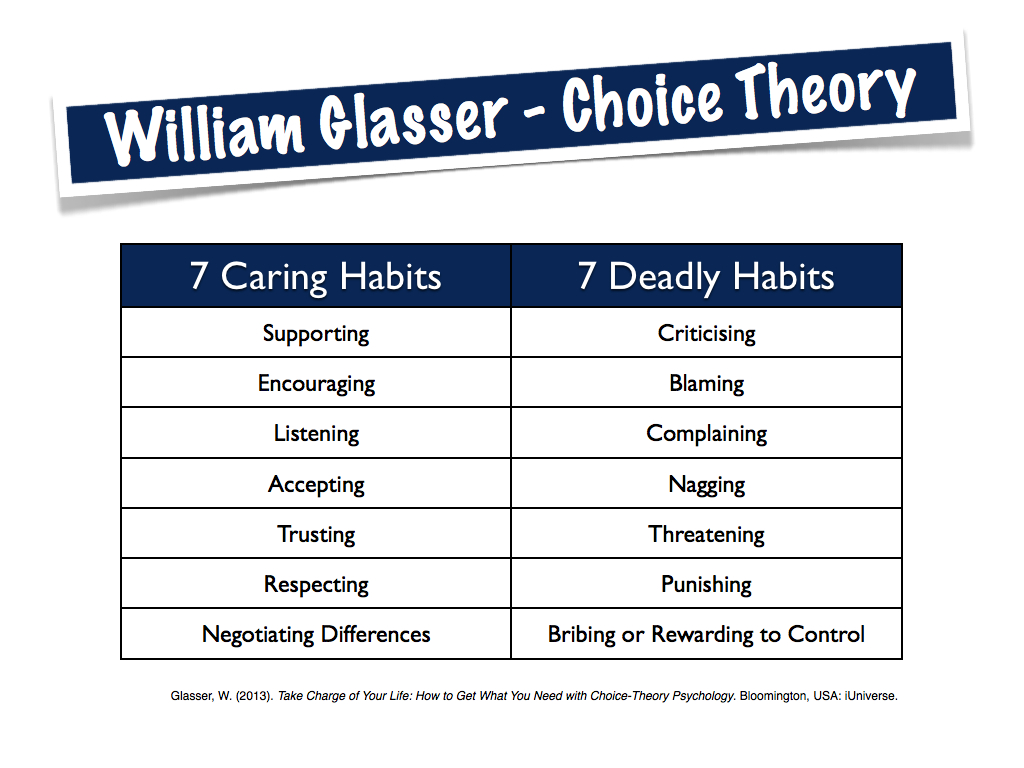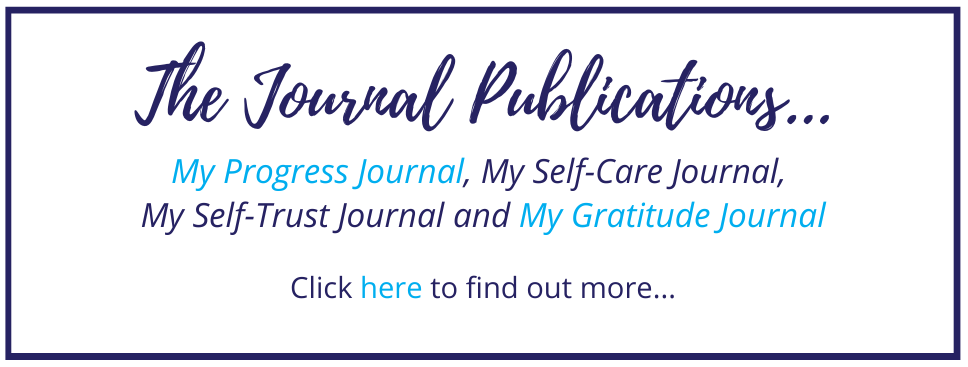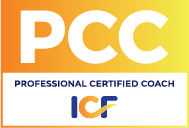What is Choice Theory?
Choice Theory (and also reality therapy) was created by Dr. William Glasser. One of the underpinning beliefs of choice theory is that people are in control of almost all of their behaviors (i.e they have a choice) and cannot control other people.
In the book Choice Theory: A New Psychology of Personal Freedom, Glasser talks about replacing external control psychology with new choice theory psychology. According to Glasser, external control psychology has as its major premise –
“if we are unhappy, we are not responsible for the way we feel. It’s always other people, events we can’t control, or something structurally or chemically wrong with our brain that is the cause of our pain. It is never what we choose to do that is the cause of our misery.” (p.15).
When people use external control, they think it is not them who is the cause of their suffering, it is their partner or another person. Subsequently, individuals can try and control their partners (or significant others) behaviour and use the seven deadly habits of external control. In Take Charge of Your Life, Glasser indicates Choice Theory is –
“based on the assumption that each individual, ultimately, controls only him or herself and is self-motivated.” (p.1).
The Seven Deadly Habits
What are the Seven (7) Deadly Habits of external control Glasser refers to in Choice Theory? They are –
- criticising
- blaming
- complaining
- nagging
- threatening
- punishing
- bribing or rewarding to control.
The Seven Caring Habits
Instead of using these “Seven Deadly Habits” in relationships, Glasser talks about replacing them with “Seven Caring Habits”. The Seven (7) Caring Habits that can replace the Seven (7) Deadly Habits are –
- supporting
- encouraging
- listening
- accepting
- trusting
- respecting
- negotiating differences.

Reflection –
- What insights have you developed about yourself and your past or current relationships?
- Are your past or current relationships based on external control or choice theory?
- How would you prefer your relationships to be?
- Is there a deadly habit that you would like to let-go of? If so, what deadly habit are you ready to start to release?
The Ten Axioms of Choice Theory
William Glasser also refers to ten axioms of choice theory that both define and redefine our personal freedom. The ten axioms are –
- The only person whose behaviour we can control is our own.
- All we can give or get from another other people is information.
- All long-lasting psychological problems are relationship problems.
- The problem relationship is always part of our present life.
- What happened in the past that was painful has a great to do with what we are today, but revisiting this painful past can contribute little or nothing to what we need to do now; improve an important present relationship.
- We are driven by five genetic needs: survival, love and belonging, power, freedom and fun (some of these link to Abraham Maslow’s Hierarchy of Needs).
- We can satisfy these needs only by satisfying a picture or pictures in our quality worlds.
- All we can do from birth to death is behave. All behavior is total behavior and is made up of four components: acting, thinking, feeling and physiology.
- All total behaviour is designated by verbs and named by the component that is most recognisable.
- All total behaviour is chosen, but we only have direct control over the acting and thinking components. We can only control our feelings and physiology indirectly through how we choose to act and think.
Over to You…
Please remember, sometimes it can be challenging to meet yourself and let-go of trying to control other people (which can come from childhood and conditioning). There can be a real vulnerability involved. So make you sure look after yourself, show some self-compassion and get extra professional support if required.
Thanks for reading and please feel free to share any insights or comments below.
If you are ready to reclaim your courage and take the next step towards freedom and opening your heart, why not join our Toolkit?
“Between stimulus and response there is a space. In that space is our power to choose our response. In our response lies our growth and our freedom.” ~ Viktor E. Frankl
References –
Glasser, W. (1999). Choice Theory: A New Psychology of Personal Freedom. New York, USA: Harper Collins Publishers
Glasser, W., & Glasser, C. (2010). Getting Together and Staying Together: Solving the Mystery of Marriage. USA: Harper Perennial.
Glasser, W. (2013). Take Charge of Your Life: How to Get What You Need with Choice-Theory Psychology. Bloomington, USA: iUniverse.

















6 Comments
[…] 3 Discussion Forum 2 Discussion Topic Considering Choice Theory, how would the knowledge of the “7 Caring Habits” vs the “7 Deadly Habits” be useful in working with adults who have developed negative […]
[…] dating, I told The Therapist all about my awful marriage. My husband was guilty of every single deadly habit. Apparently none of that mattered. I was supposed to just take the asshole back because he cried. […]
[…] Choice Theory – Replacing 7 Deadly Habits with 7 Caring Habits in Relationships. (n.d.). Retrieved from https://www.habitsforwellbeing.com/choice-theory-replacing-7-deadly-habits-with-7-caring-habits-in-r… […]
[…] early morning realization (all before 8am), led me in search of an easy image that lists the 7 Caring Habits and the 7 Deadly Habits. Something visual to trade a deadly habit […]
[…] Choice Theory – Replacing 7 Deadly Habits with 7 Caring Habits in Relationships […]
[…] Choice Theory – Replacing 7 Deadly Habits with 7 Caring Habits in Relationships […]